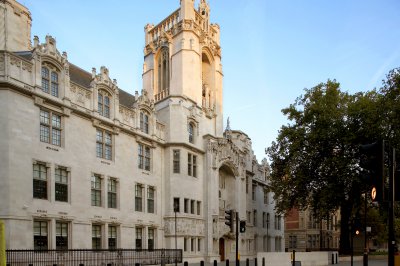How can a creditor enforce a CCJ against my Company
News and Blog
Hello and welcome back for the next blog on insolvency topics from Purnells.
This week we are tackling the subject of County Court Judgments are how they can be enforced by creditors.
Firstly we need to consider how a creditor can enforce a County Court Judgment (CCJ) before you can consider how you can protect your company from that enforcement process (which will be covered in next week's blog).
The first thing to realise is that once a CCJ has been granted by the Court nothing automatically happens as regards enforcement.
The only automatic events after a County Court Judgment is granted are administrative actions such as:
- The registration of the Judgment on the Court file,
- The registration of the existence of the Judgment is also filed with an organisation called Registry Trust. That Registry will produce lists of County Court Judgments to third parties for a fee. (This may be why your Company begins to receive "ambulance chasing" letters from unknown third parties trying to offer their services to assist now your Company has been the recipient of a CCJ), and
- The forwarding of the CCJ document to you by the Court to confirm that a Judgment has been made against your company.
So what steps must a creditor take to try to collect a sum due from your company after he has obtained a County Court Judgment?
That creditor has several options – Each option involves them taking extra steps – usually involving the completion of another Court Form and the payment of a further Court Fee.
To explain the options it might be useful to consider an illustrative case study. Let’s say that the name of your company is Myco Ltd and that your supplier who has obtained a CCJ against Myco Ltd for £35,000 is called Supplier Ltd. The options open to Supplier Ltd to enforce the CCJ against your company are as follows:
- Instruct bailiffs or sheriffs to seize assets owned by Myco Ltd. This action and the Court Order is called a warrant of execution. More information on this option can be found by following the link.
- To issue a Court document against Myco Limited’s bankers which instructs that bank (if the account is in credit) to pay, under Order of the Court, the £35,000 to Supplier Ltd without reference to you. This type of Court action is called a Garnishee Order or Third Party Debt Order. More information on this option can be found by following the link.
- Alternatively a Garnishee Order (Third Party Debt Order) can be issued, via the Court, by Supplier Limited against one of Myco Limited’s customers! For instance if an entirely innocent customer of Myco Ltd owed £40,000 to Myco Ltd then Supplier Limited’s Garnishee Court Order could be sent to that customer of Myco Ltd - and that customer would have to pay Supplier Ltd the £35,000 direct. (This would require intimate knowledge of MyCo Ltd's dealings however and would be hard for Supplier Ltd to actually know, unless they knew the customer) More information on this option can be found by following the link.
- In the further alternative, Supplier Limited could also serve a statutory demand against Myco Limited as a preliminary to issuing a Winding Up Petition against Myco Ltd. More information on this option can be found by following the link.
- Alternatively it is also open to Supplier Ltd to issue, via the Court, an application for a charge (a charging order) against any freehold property owned by Myco Limited. The effect of a Charging Order when granted is that Supplier Ltd effectively holds a legal mortgage over one of Myco Limited’s properties and can then pursue possession and sale of that property. More information on this option can be found by following the link.
- The directors of Supplier Ltd might, as a further option, obtain an Order of the Court to have the Director of MyCo Ltd examined in Court. This is known as an Oral Examination. The purpose of an Oral Examination is to determine what properties or other assets are owned by Myco Ltd. Once Supplier Ltd knows what assets Myco Limited owns then Supplier Ltd can better decide which one of the above types of enforcement action is most likely to bear fruit.
Unfortunately there is not enough space in this blog to assess the pro's and con's of each of the above, however further details can be found on our website, using the links in this blog.
Next week we will be examining the ways in which a Director of a Company which has a CCJ against it can take steps to protect it.
As always, Should you wish to discuss CCJs, their impact on your Company or the options open to your Company in more detail, please do not hesitate to get in contact. Telephone: 01326 340 579, Email: chris@purnells.co.uk

Posted: 27/05/2016 15:50
